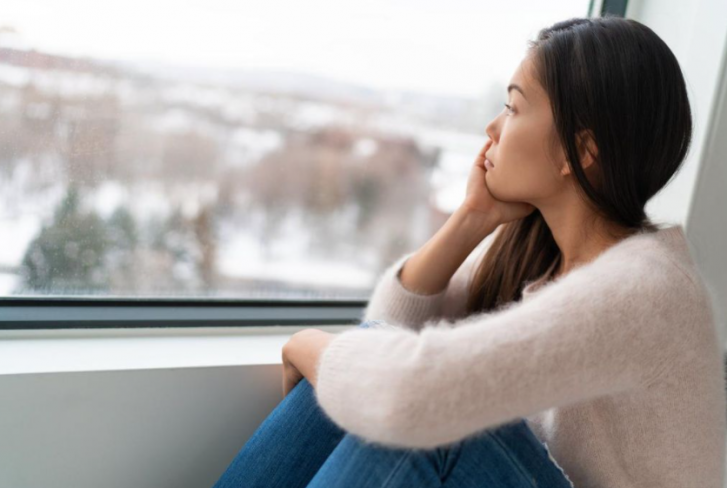Since the pandemic started in March 2020, people like me, with experience of mental illness, have faced isolation, fear, anxiety, and depression. The worst is uncertainty about the future.
I am a senior, but feelings such as these probably affect the younger generation most. Some have lost their jobs while still needing to support their families; some suffered the trauma of bereavement, losing parents and grandparents. Those with children at home were stressed, supervising school work while trying to work remotely. Many medical professionals were literally burnt out.

In fact, research done in 2021 in Canada about the rates of anxiety and depression during the pandemic indicates that anxiety symptoms rose from 5 per cent per cent to 20 per cent, while depression climbed from 4 per cent to 10 per cent.
Now that Canada is on its way to reopening, thanks to the increased availability of vaccines, the number of people ill with the virus has significantly dropped. Employers are hiring and in-school teaching should be back in September.
Emotional recovery, however, may be difficult to achieve during a pandemic. Grief, gloom, fear, anger, and depression will remain for a long while.
Each day, we still hear from the news media of deaths and new cases in Canada and elsewhere in the world. Some project their anger at China where the pandemic started. Being angry makes us suspicious of strangers.
When we go out to restaurants, we cannot be sure that the person at the next table has had their full vaccination. We feel vulnerable. Many of us are now hesitant to fly. Even the use of public toilets has become a worry. Will there be another lockdown? And other new variants? There are so many factors that are beyond our control. How will we ever be able to recover from all these worries?
Yes, we all live with uncertainty. We need to be realistic, at least for now, and accept the “new” normal, wearing masks, washing hands, and keeping physically distanced from each other.
What strategies, then, can help us cope with our stress, our anxiety, our grief, and our depression?
For a start, I suggest not watching so much COVID-19 news? The media thrive on sensational events, which only increase our anxiety. How about watching a comedy instead? Distraction is a very appropriate strategy to relieve tension.
Physical distance does not mean social distance. Maintain a socially supportive network through which feelings can be shared. Phone your friends, especially your senior friends. Use Zoom or FaceTime or email or What’s App for social connections. Emotional isolation is not good for anyone, even more so for those of us who are naturally introverted.
Healthy eating is a must to build a strong immune system; to lessen stress. I use YouTube recipes and my cooking skills have considerably improved. My cooking is now my daily joy. For those who are not comfortable in the kitchen, look at it as a challenge.
With the still high rate of unemployment, food banks need donations. Why not donate to the food banks? This show of generosity fosters one’s positive attitude.
Many of us have used exercise before the pandemic. What does one do when gyms and swimming pools are closed? Exercise routines can be changed. Walk/run/cycle outdoor or do indoor exercises with YouTube. Simple breathing exercises and mindfulness routines are great for alleviating anxiety. All recent research demonstrates that exercise can uplift one’s spirits.
Like so many others, no matter their religion or lack of it, I have found comfort and hope in spirituality in the pandemic. Belief in a deity that sees all and heals all brings calm to the panic and unpredictability of COVID-19. It can heal the grief of loss and help us stay steady and squarely face whatever trauma comes our way.
The pandemic builds our resilience for whatever future events we encounter in our lives. Life is full of unpredictable surprises.
Emotional recovery can often take longer than we anticipate. Nonetheless, resources are available should one need to seek help and support. I have found that family doctors are the best first step to finding help.
Vaccinations have proven that hospitalizations and death rates have decreased. We can now see the dawn of hope.
Article From: The Star
Author: Caroline Fei-Yeng Kwok is a mental health advocate and author of “Journeys of Renewed Hope.”

